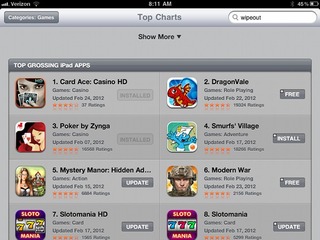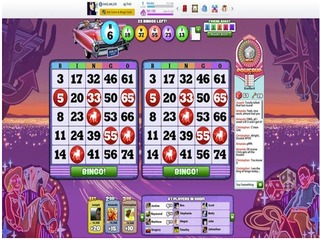House introduces bipartisan bill on AI in banking and housing
The bill would require a report on how these industries use AI to valuate homes and underwrite loans
Read more...
Social and mobile gaming companies have been running full-speed to capture the casino-gaming segment of the market with high hopes that the regulations will become more simplified in coming months.
One of the major players in this effort to meld tech-gaming and casino style is Betable, a London-based startup that is exiting its stealth mode to bring the monetization developers desire.
Betable is working on creating an infrastructure, payment system, licensing, anti-fraud procedures, and verification to bring legally online gambling via social gaming to a person based on their geo-location markers.
The company also shared, on Monday, that it has raised one of 2012's largest seed rounds of funding, an undisclosed amount from more than 25 investors including Greylock Discovery Fund, FF Angel, True Ventures and Yuri Milner.
"Social game developers have a big problem; existing game monetization methods yield very low per player revenue, so without millions and millions of players it is extremely difficult to build viable businesses," said Christopher Griffin, Founder & CEO of Betable. "By partnering with Betable to enable real-money gaming, developers will see huge increases in their average revenue per user and average customer lifetime value."
Betable originally launched its private alpha program in March 2012, and will soon be able integrate real-money gaming quickly and easily into new or existing games using their API.
Until now, social casino-style games are played when users pay real money for online currency but cannot get any real-money gains because of federal and state gaming regulations. There are some states where real-money could be factored in but all of the big gaming companies have sidestepped it because it is a challenge to determine and verify the location and age of each user.
For this new service, when that person plays a social casino game on the Web or on a mobile phone, Betable will ask them if they want to play with real money and if they are in the territories where gambling is legal, the service will go from virtual currency to real.
bitable double-checks the user's location by checking into a variety of records such as credit reports, bank accounts with real addresses, voting records, and other information.
Betable will also give partners the ability to customize their own gambling mechanics, empowering game developers to bring much needed innovation to casino-style entertainment, delivering improved experiences for consumers on every platform.
If you take a look at Zynga, for example, only roughly 2% of its users pay real money for virtual goods, and those players only spend a few dollars a month, but real-money gambling players spend, on average, $99 to $200 a month on poker games, according to market researcher Playtech.
Social gaming generated around $7.3 billion in revenue last year, Playtech says, while online gambling companies generated $32 billion worldwide, and the casino industry generates $426 billion -- of course the social gaming brands want a slice of that much bigger, sweeter pie.
So, while Betable is not a strong contender for the current U.S. system, companies that want to tackle worldwide business will likely start jumping on board while more of them lobby for adjustments and exceptions to get created in the U.S.

The growth of casino gaming
Gambling is big business, and earlier this year, International Game Technology (NYSE: IGT) announced that it was buying Double Down Interactive for $500 million, of which $250 million is in cash up front.
Double Down Interactive was considered the No. 4 game on Facebook at the time, after having launched not even two years ago.
At the time of acquistion, the company was reportedly raking in $140,000 a day in revenue. That's about $50 million a year.
Zynga's poker game also has a two-year headstart, having launched in 2008, suggesting there's a lot more growth for IGT's Double Down.
Just a few months ago, Big Fish Games announced that acquired mobile social game developer Self Aware Games and its parent company, Social Concepts, which makes Card Ace: Casino, which was then the No. 1 grossing app on the iPad, and the No. 4 grossing app on the iPhone. It's also available on Android.
Many companies, including the social gaming giant Zynga are looking at the Facebook community to launch their own casino-styled game. Crowpark even launched a couple games, in the spring, on Facebook to take advantage of the demand for such games. It's estimated that worldwide sales for social network games was $4.94 billion last year and will be $6.2 billion this year, according to Casual Games Association.
The bill would require a report on how these industries use AI to valuate homes and underwrite loans
Read more...The artists wrote an open letter accusing OpenAI of misleading and using them
Read more...The role will not be filled by Elon Musk, though he will be involved in who is chosen
Read more...



